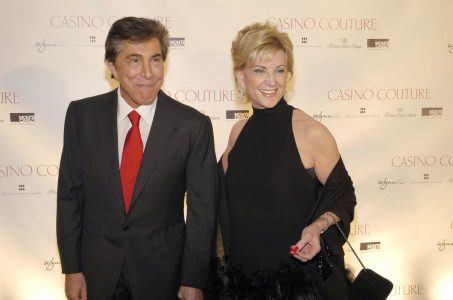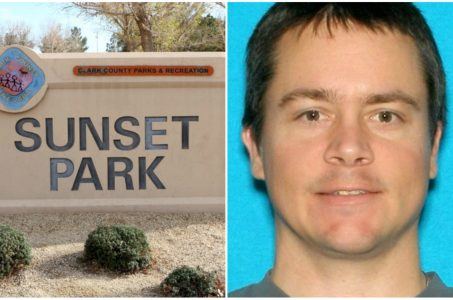What’s In a Name? Las Vegas Seesaws on “Sin City” Moniker
Posted on: January 28, 2014, 05:30h.
Last updated on: November 30, 2021, 10:50h.

The fascinating thing about Las Vegas is how it reflects American culture at its very deepest roots. Our bootleggin’, gamblin’, Wild West’n history, for starters; but more than that, our endless struggle between the views of our Puritan fathers and our not-so-Puritan modern values. It’s all a kind of bouillabaisse of morality mixed with sin – and sometimes the pot just plain boils over.
Family Feud
We all remember that brief and somewhat absurd period in the 1990s when Vegas tried to reinvent itself as a family-oriented destination: a move that brought neither families nor the town’s bread-and-butter – gamblers and their debauched brethren – running. By the turn of the 21st century, that little effort was pretty much put to bed. Or was it?
“Sin City” – as many have affectionately referred to Las Vegas for decades now – may be going through yet another identity crisis, but this time, it centers around the Las Vegas Convention and Visitors Bureau (LVCVA) and their desire to win the 2016 Republican National Convention to town.
GOP leaders have apparently been touting Vegas to their convention constituency with a slick video that focuses more on the town’s upscale hotels, year-round sunshine, and numerous 18-hole golf courses. Of course, we all know no Republican has ever seen the inside of a so-called gentlemen’s club or lost a years’ mortgage payments playing blackjack.
On the other hand, sex and sin definitely sell in this neon-layered burg; and while its sizzle image may leave some thinking it’s mostly hype, regulars and high rollers in this city can tell you that what you hear is probably but a smidgen of what goes on when it comes to sex, drugs and rockin’ and rollin’.
The city’s “What Happens in Vegas, Stays in Vegas” slogan has become almost hackneyed, it’s so much a part of the vernacular these days. And it’s been at least partly responsible for luring some 40 million tourists from all walks of life to this desert oasis – with the almost irresistible promise of freedom from life’s usual confines – at least for a few days – for everyone who visits.
“The whole idea of sin as being kind of surreptitious and naughty and cute is how they promoted Las Vegas [back in the day],” said Dennis McBride, who is director of the Nevada State Museum at Springs Preserve and something of a Las Vegas history expert. “And it was true in that sense because you could do all those things here and you couldn’t really do them anywhere else without running up against some state blue laws or dry laws or nude laws.”
More Sinful Fifty Years Ago
McBride says the “Sin City” vision probably officially began in the prudish 1950s, when the city’s legal gambling, then-shocking topless shows and free-flowing liquor made it much more sinful – relatively speaking – than it probably actually is today; but the image stuck.
Experts say the expression “Sin City” itself could date back to a 1963 book called “Las Vegas, City of Sin?” And yes, that question mark was in the book’s title.
Of course, fast-forward some 50 years later, and Sin City’s activities are not nearly as shocking or rare, considering the prurient nature of what anyone can find with a click on the Internet or even in their own hometowns these days. Even the Midwest and the Bible Belt – regions that present as upright and modest – have plenty to offer without much searching when it comes to booze, broads and bedlam anymore. In fact, some areas of seemingly uptight Michigan have looser policies than Las Vegas, where all-nude dancing is not allowed when liquor is being served.
Other areas where Las Vegas remains pretty old-school include its illegal prostitution, closed car lots on Sundays, and technically strict drug laws. Of course, two of those statutes have possibly been overlooked once or twice or 200,000 times in the city’s casinos and nightclubs and certainly in its hotel rooms, but hey, looking the other way is part of any major property’s code of conduct, as long as it is done subtly and so as not to draw any attention to itself.
Regardless, “Sin City” continues to be to Las Vegas what “Big Apple” is to New York City or “Chi Town” is to Chicago: a nickname that’s stuck. And in a world where “bad” is often considered good and “wicked” equates to fun, there are certainly much worse names this gambling mecca could be stuck with.
Related News Articles
Most Popular
Mirage Las Vegas Demolition to Start Next Week, Atrium a Goner
Where All the Mirage Relics Will Go
Most Commented
-
Bally’s Facing Five Months of Daily Demolition for Chicago Casino
— June 18, 2024 — 12 Comments















